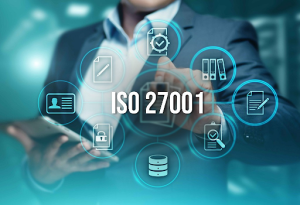In today’s digital age, companies handle vast amounts of sensitive information, from customer data to internal business strategies. Protecting this information is no longer optional; it is essential for maintaining trust, regulatory compliance, and overall business resilience. One effective way to enhance your company’s information security is by obtaining ISO 27001 certification. This internationally recognized standard provides a structured approach to managing and safeguarding information, helping organizations reduce risk and strengthen their security posture.
Understanding ISO 27001 Certification
ISO 27001 certification is a globally recognized standard that focuses on information security management. It sets out the criteria for establishing, implementing, maintaining, and continually improving an Information Security Management System (ISMS). The certification is applicable to organizations of any size or industry that wish to protect sensitive data and demonstrate their commitment to information security to clients, partners, and regulators. By following ISO 27001 guidelines, companies can systematically identify potential security risks, implement appropriate controls, and ensure continuous monitoring and improvement of their information security practices.
Enhancing Data Protection
One of the primary benefits of ISO 27001 certification is its ability to enhance data protection. The standard requires organizations to identify all forms of sensitive information and implement measures to prevent unauthorized access, modification, or disclosure. This includes digital data, physical records, and even intellectual property. By adopting a structured framework, companies can minimize the likelihood of data breaches and mitigate the impact if a security incident occurs. Strengthened data protection also builds customer confidence, as clients are more likely to trust businesses that demonstrate a commitment to securing their personal and financial information.
Reducing Business Risks
Businesses today face various risks related to cyberattacks, system failures, and human error. ISO 27001 certification provides a systematic approach to risk assessment and management. Organizations are required to evaluate potential threats to information security, determine their likelihood and impact, and implement controls to mitigate them. By proactively addressing these risks, companies can reduce the chances of costly incidents, legal consequences, or reputational damage. This proactive approach also enables businesses to respond quickly and effectively in case of a security breach, minimizing downtime and disruption.
Compliance with Legal and Regulatory Requirements
Many industries are subject to strict regulations regarding the handling of sensitive information. ISO 27001 certification helps companies comply with relevant legal and regulatory requirements by establishing clear policies, procedures, and documentation. For example, organizations that manage personal data must adhere to data protection laws, such as GDPR or HIPAA. Achieving ISO 27001 certification demonstrates that the company follows internationally recognized best practices, which can simplify audits, inspections, and reporting obligations. Compliance not only avoids penalties but also strengthens the company’s credibility in the marketplace.
Building Customer and Partner Trust
Trust is a critical factor in business relationships. Clients, investors, and business partners want assurance that their information is secure. ISO 27001 certification provides tangible proof that a company prioritizes information security and operates according to internationally accepted standards. This certification can serve as a competitive advantage, particularly when dealing with clients who require suppliers to demonstrate strong security practices. By showing commitment to protecting sensitive information, companies can strengthen existing relationships, attract new customers, and differentiate themselves in a crowded market.
Encouraging a Culture of Security
Achieving ISO 27001 certification is not just about implementing technical controls; it also involves promoting a culture of security throughout the organization. Employees are trained to recognize security risks, follow policies, and report potential threats. This shared responsibility ensures that everyone in the company understands their role in protecting information. A strong security culture reduces human error, which is often the weakest link in information security, and supports long-term compliance and risk management.
Continuous Improvement
ISO 27001 certification emphasizes continuous improvement, requiring organizations to regularly review and update their ISMS. Security threats are constantly evolving, and companies must adapt their policies and practices to address new risks. Regular audits, monitoring, and management reviews ensure that information security remains effective and aligned with organizational goals. Continuous improvement not only strengthens security but also demonstrates the company’s ongoing commitment to excellence and resilience.
Conclusion
ISO 27001 certification is more than a formal recognition; it is a strategic investment in your company’s information security. By implementing the standard, businesses can protect sensitive data, reduce risks, comply with regulations, build trust with clients and partners, and foster a culture of security. In an era where information is a valuable asset, achieving ISO 27001 certification provides a clear framework for safeguarding it, ensuring long-term stability and confidence in your company’s operations.








